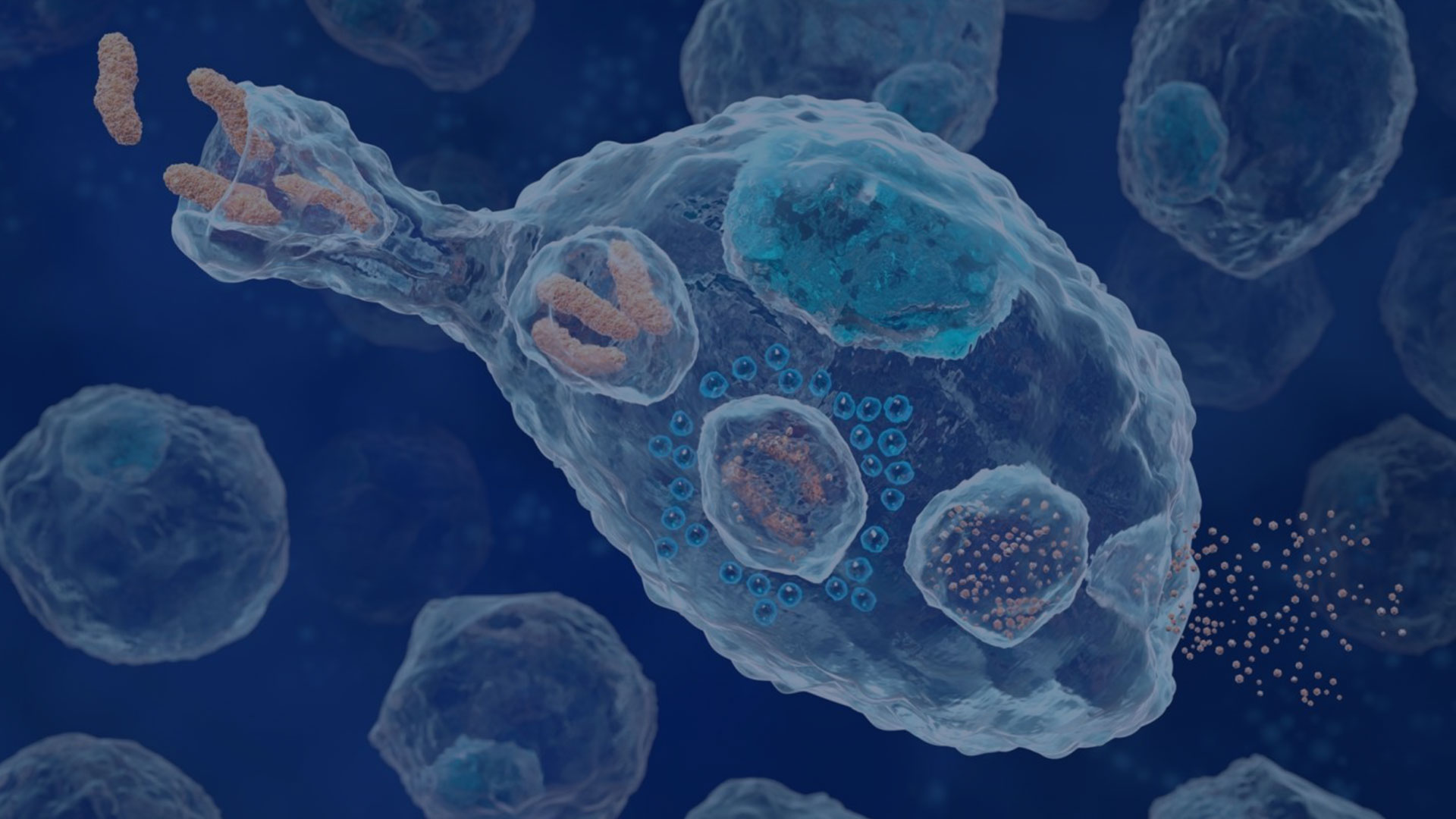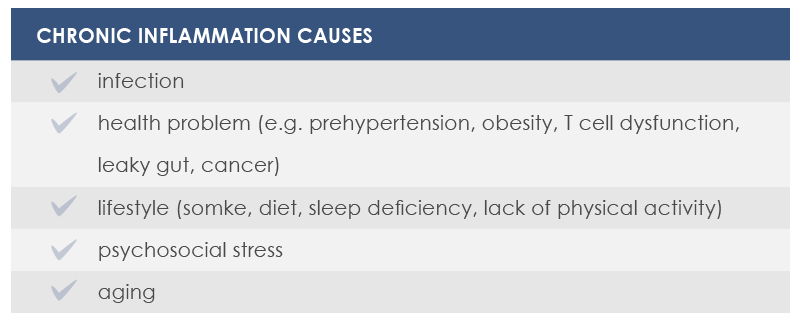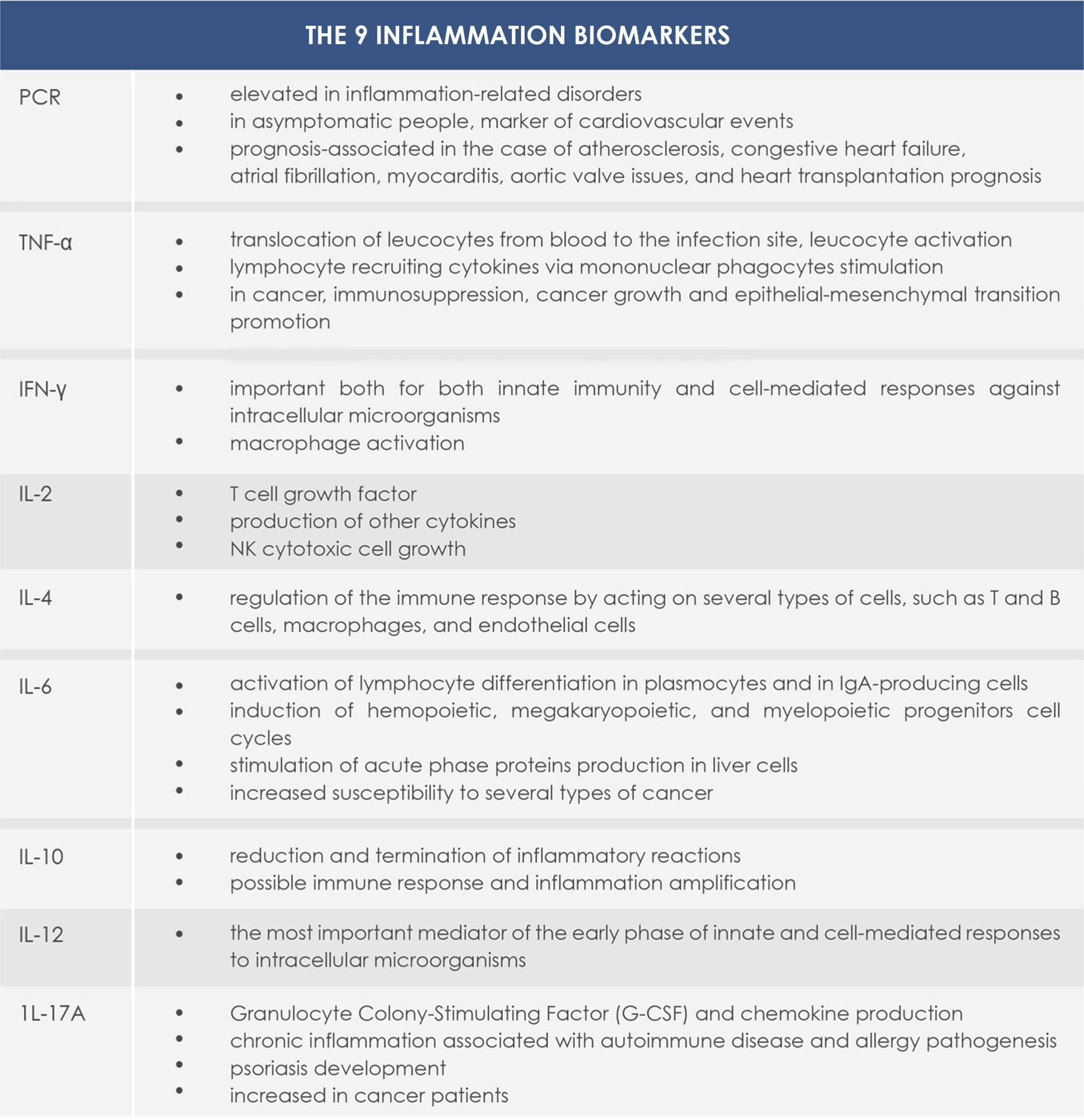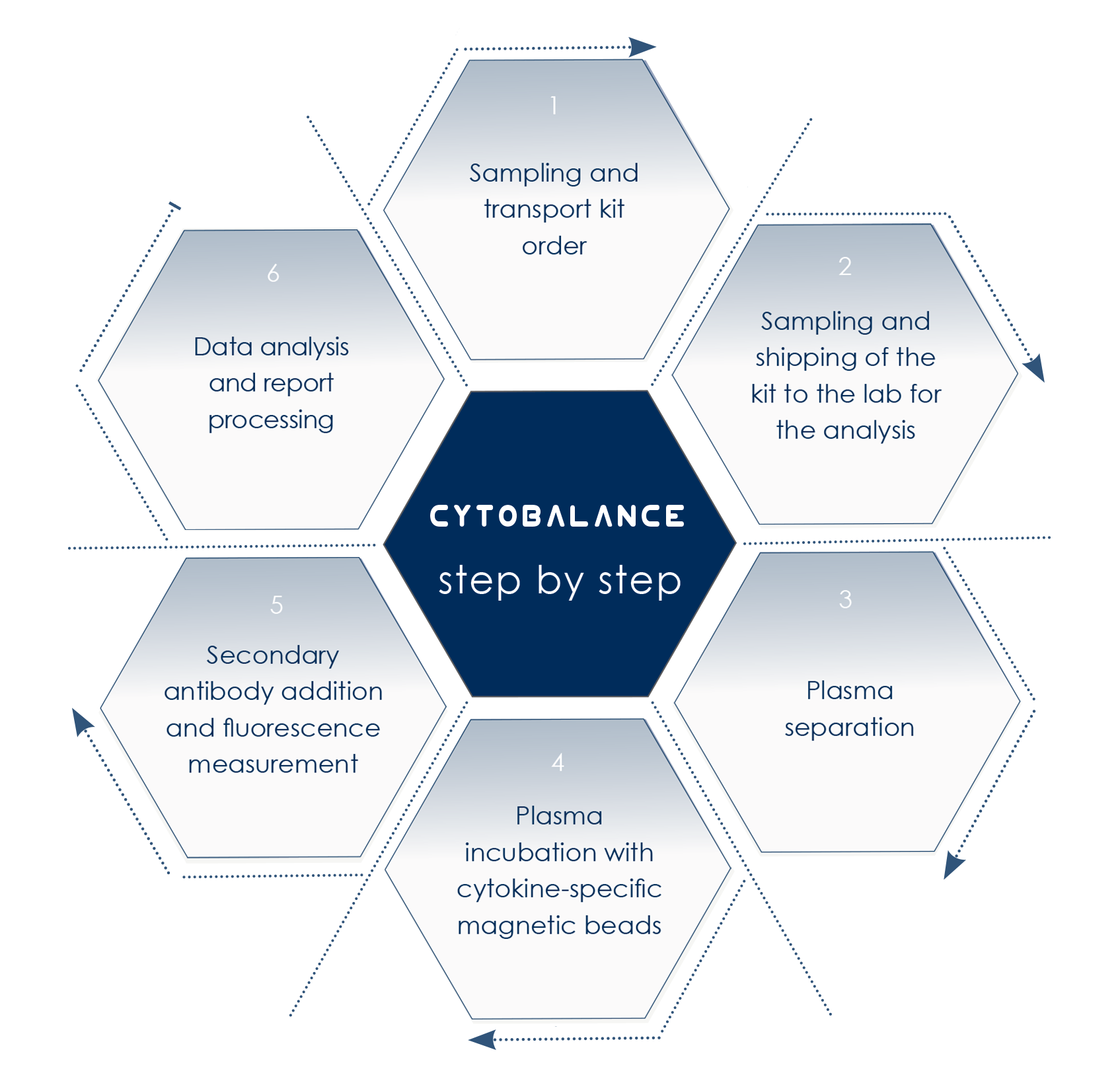Inflammation is a weapon used by the body to fight against health threats such as trauma and infection. However, these are not its only purposes. In fact, there are forms of inflammation that are not triggered by microbes or lesions. This type of inflammation can subtly endanger your health, without triggering noticeable symptoms.
Keeping inflammation levels below alert limits can help reduce risk factors for diseases associated with silent inflammatory phenomena.
With CYTOBALANCE, the Bioscience Institute provides a platform for monitoring cytokines, which are the molecules associated with inflammation. The goal is to identify or prevent, in healthy and asymptomatic people, physiological or pre-pathological conditions that prepare the onset of the most common chronic diseases today.





